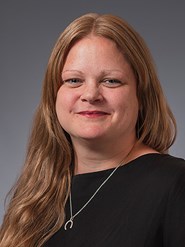
Assistant Professor in Political Science. Interested in multi-level governance, placement of public services, political conflicts, and the center-periphery divide.
I have a PhD in Public Administration, University of Gothenburg 2019. From 2019 to 2022, I worked as a researcher in Public Administration at the University of Gothenburg, within the VR-funded project "Competitive democracy in Swedish local government." Between 2022-2023, I was a postdoctoral researcher at the Department of Political Science. And since 2023 I am an assistant professor in political science.
Research Interests
My research interests include multi-level governance, placement of public services, political conflicts, the relationship between urban and rural areas, sustainable rural development, and public meals.
Current Research
Currently, I am working on the research project "The challenge of location for public services – equal access to public services and democratic governance in the whole of Sweden" (funded by Formas, approximately 7 million SEK) as the principal investigator. In this project, we examine how priorities and decision-making regarding location for public services in Swedish municipalities and regions can be conducted in a legitimate manner. Project leader: Louise Skoog, participating researchers: Jenny de Fine Licht and David Karlsson.
During 2023, a survey towards members of local councils in Europe is conducted and Sweden is one of the 26 countries included. For each participating country, a national research group is involved and together with colleagues in political science at Umeå University, I am participating in this project during 2023-2024. The aim of the survey is to increase our understanding of which attitudes, conditions and challenges of local council members that are similar and which varies across European countries. The survey includes questions on working conditions, experiences of threats and hostility, as well as council members' perceptions of power and influence in local politics.
Teaching experience
I have received two educational awards: the Faculty of Social Sciences' Teaching Award in 2018 (University of Gothenburg) and the Göta Student Union's Teaching Award in 2014 (University of Gothenburg).
Research Networks
I am part of the externally funded research networks:
Previous Research Projects
"Competitive democracy in Swedish local government - how parliamentary settings and marketization form local political conflicts" (funded by the Swedish Research Council, approximately 2.8 million SEK) as a co-applicant and participating researcher. In this project, we study how local politicians and parties navigate the conflicting demands they face from parliamentary settings and political competition on one hand, and marketization and competitive administration on the other. Project leader: David Karlsson, participating researchers: Louise Skoog, Oskar Svärd, and Pierre Donatella.
"Political conflicts - dissent and antagonism among political parties in local government" (dissertation project). In my dissertation, I examined political conflicts at the local level. Political conflicts arise from, or at least are fueled by, divisions and tensions in society regarding how resources should be distributed among citizens and social groups. These conflicts manifest on the parliamentary stage through political parties representing their constituents' interests. Understanding how political conflicts are expressed and managed is thus crucial for understanding the political system. In my dissertation, titled "Political conflicts - dissent and antagonism among political parties in local government," I explored the nature, causes, and effects of political conflicts at the local level.